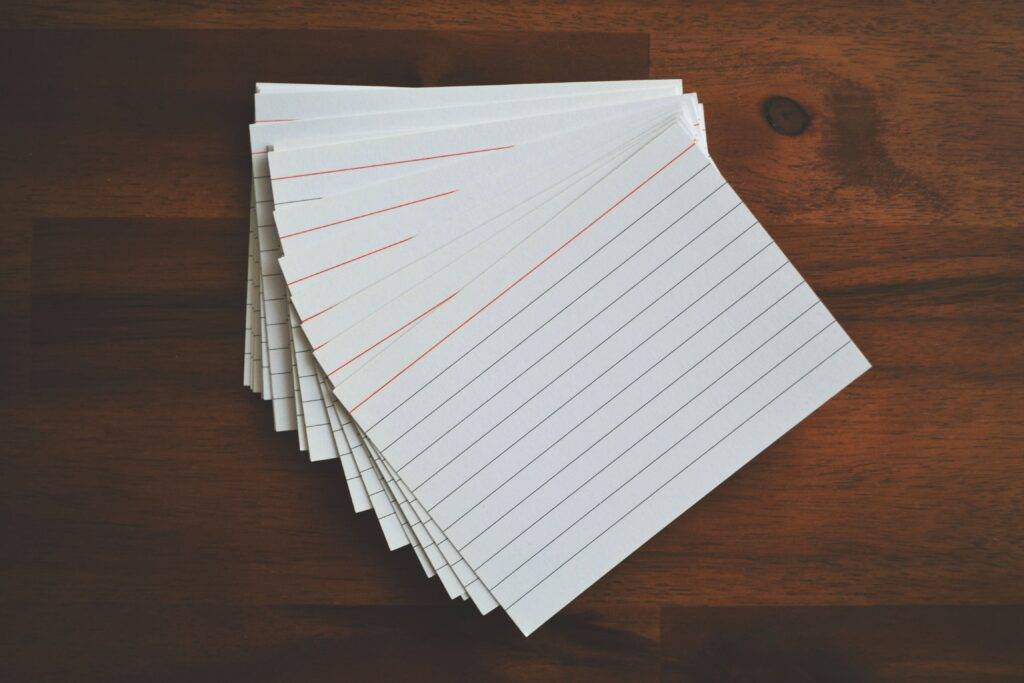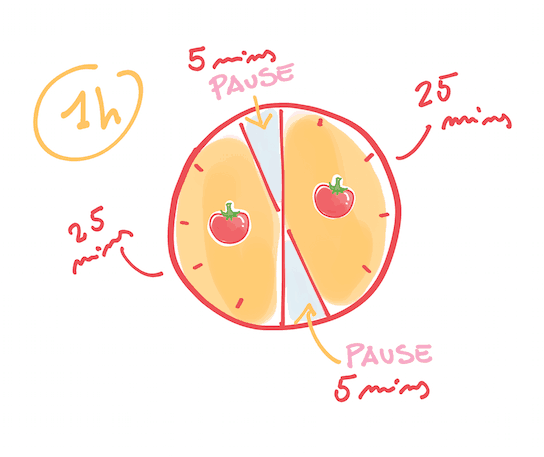It’s not that hard to memorize quickly and easily, at least if you use the right strategies – memorization techniques – Whether you need to memorize a long list of vocabulary for a test, several lines for a play, or something else, there are several ways to simplify the process.
So prime your brain with strategies that improve memory. It’s time to work smarter, not harder. Thus, there are effective memorization techniques that can help you:
Use an acronym to memorize words in a specific order
An acronym is a type of mnemonic in which the first letter of each word in a word, phrase, or sentence stands for something you want to remember. You can create your own acronym to memorize words in a specific order or just memorize a group of words for example:
- A popular mnemonic in the music world is Every Good Boy Deserves Fudge, which stands for notes on the treble staff: EGBDF.
- The acronym for the fake name ROY G BIV has long helped people remember the colors of the rainbow: red, orange, yellow, green, blue, indigo, and purple.
- Mathematics uses the acronym PEMDAS to remember the order of operations while English grammar uses FANBOY as a memory aid for conjunctions.

Assign an image to what you need to remember
Associating an image with a word or concept is another effective way to memorize it. Try to create an interesting image and look at it often while reading the material you want to remember. This can also be very useful for remembering people’s names.
If you need to remember the names of your colleagues you just met, think of an image you can associate with each person’s name.
For example, you can associate Charlie with an image of the cartoon character Charlie Brown, Cindy with legendary model Cindy Crawford.
Make your own flashcards and study them daily
Flashcards are a classic memorization tool. Write the concept, cue, or subject on 1 side of the card, and then write the definition, line, or other details you need to memorize on the other side. Make sure all of the flashcards are facing in 1 direction in your stack and go through the pile. Look at the concept or cue side first and see if you can recall the definition or line on the other side. If not, read it a few times to commit it to memory. Then, move on to the next card.
Tip: When you are studying, be sure to vary the types of information you study. This is an effective strategy for maintaining focus.

Write a summary for each paragraph to understand it better
As you read the material you want to memorize, write a summary of each of the paragraphs you read. Write the summary in your own way to help you keep the information. This will help you gain a basic understanding of the material and even memorize some key terms and concepts.
For example, after reading a paragraph about how the heart pumps blood, briefly explain it to yourself in 1 or 2 sentences.
Compartmentalize the information into Smaller Chunks
It is difficult to remember long strings of numbers and words, such as identification numbers or lines in a play. If you need to store a large amount of material, break it down into manageable chunks to make things easier for you. Some ways you can do this are:
- Color-code your notes by topic.
- Memorize a sentence of 3 to 4 words or 3 to 4 numbers at a time.
- Focus on key terms from a paragraph or page of a textbook.

Relate the information to something you already understand
Choose a topic that interests you and that you understand very well. Then find a way to relate the information you need to remember with the topic you already understand.
For example:
- you can relate the material you need to remember for a math test with the rules of baseball if you are a sports fan.
- use a cooking analogy to help you memorize a chemistry concept if you are a fan of cooking.
Plan to memorize the afternoon rather than the morning or evening
The afternoon maybe when you feel least alert, but it’s also been shown to be a good time to work on memorizing new information. If you have trouble remembering the material you are studying, try to memorize it in the afternoon rather than in the morning or evening.
For example, you could work on memorization around 2 or 3 p.m.
Pomodoro technique
This technique can help you as it has been very popular recently. It is simply a method that breaks your work into four blocks of 25-minute work separated by five-minute breaks. After the four blocks, you can take a longer break about 15-20 minutes. Rather than feeling that you have endless time to finish the work, you know you only have 25 minutes to finish as much work as you can. Some people find having a short work period allows them to focus.

Sleep well before you start memorizing
Being well rested has a profound impact on your memory retention. To give yourself the best chance of retaining information, go to bed early enough to get a full 8 hours of sleep.
Try going to bed a little earlier than usual, such as at 10:00 p.m.
If you normally went to bed at 10:30 p.m. Make your bedroom a relaxation space that you only use for sleeping. Do not work, eat or do other activities during the day in your room.

If you desire to get any product that makes your life easier you can check this link:
Memorizing the work of others definitely made me a better writer.
James Arthur







